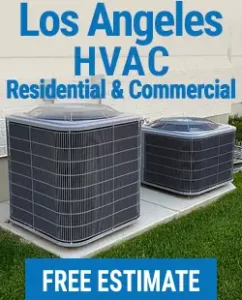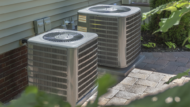Indoor air quality (IAQ) is essential for the health and comfort of residents in densely populated areas like Los Angeles. With various indoor pollutants, humidity levels, and allergens impacting our living spaces, understanding IAQ is crucial. Research shows indoor air can be two to five times more polluted than outdoor air. This highlights the need for proactive measures to ensure a healthy home environment.
Improving indoor air quality promotes better health and enhances overall comfort. Simple strategies such as regular cleaning, effective air filtration, and humidity control can benefit homeowners. By prioritizing these practices, you can create a safe and welcoming atmosphere for you and your family.
What is Indoor Air Quality?
Indoor air quality (IAQ) refers to the air quality within and around buildings, particularly concerning the health and comfort of the occupants. Various factors can influence IAQ, including pollutants, humidity levels, and allergens. According to the Environmental Protection Agency (EPA), indoor air can be two to five times more polluted than outdoor air. Understanding and managing IAQ is essential for maintaining a healthy living environment in densely populated areas like Los Angeles.
Key Factors Affecting Indoor Air Quality
Several factors can impact the quality of the air you breathe inside your home. Common pollutants include:
- Particulate Matter: Dust, pet dander, and pollen can circulate through your home and affect those with allergies or respiratory issues.
- Volatile Organic Compounds (VOCs) are emissions from household products, paints, and cleaning materials that can lead to health issues and discomfort.
- Mold and Mildew: High humidity levels can promote mold growth, triggering allergies and respiratory problems.
- Carbon Dioxide: Accumulating CO2 from breathing can lead to drowsiness or a lack of concentration.
- Radon: This naturally occurring gas can seep into homes and is a serious health hazard (CDC).
Importance of Ventilation
Proper ventilation plays a key role in maintaining healthy indoor air quality. It allows fresh outdoor air to circulate within your home, replacing stale air. Increasing ventilation can reduce indoor air pollution, help control humidity, and improve overall air quality. Most experts recommend accessing outdoor air at least once per hour to maintain optimal IAQ.
Benefits of Good Indoor Air Quality
Improving your indoor air quality comes with numerous benefits for health and comfort.
- Health Benefits: According to the World Health Organization (WHO), improved IAQ can lead to fewer respiratory issues, reduced allergies, and a lower risk of associated diseases. Regularly monitoring IAQ can help identify sources of pollution, leading to effective solutions.
- Enhanced Comfort: Good IAQ reduces odors and allergens, creating a more comfortable living environment. Well-ventilated and clean air can also enhance mood and productivity. When air quality is optimal, you can enjoy a more pleasant and relaxing home atmosphere.
- Energy Efficiency: Improved IAQ often leads to better energy efficiency, as modern air filtration systems operate more effectively. Integrating air quality solutions into your home can optimize your HVAC system’s performance.
Signs of Poor Indoor Air Quality
Before implementing solutions, it’s essential to recognize the signs of poor indoor air quality. Common indicators include:
- Persistent odors within your home often stem from mold or VOCs.
- You have increased allergy symptoms in your household, such as sneezing or itchy eyes.
- Frequent headaches or feelings of fatigue may be linked to high CO2 levels.
- Visible mold growth in damp areas, indicating humidity issues.
If you notice any of these symptoms, taking action quickly to address the underlying causes is essential.
Improving Indoor Air Quality
You can do several things to control the indoor air quality within your home. Here are a few steps that you can take this month:
Regular Cleaning
Regular cleaning is one of the simplest methods to improve indoor air quality. Vacuuming carpets and rugs, dusting surfaces, and mopping floors help remove accumulated dirt, allergens, and pollutants. Using a vacuum with a HEPA filter can trap small particles that cause health issues.
Effective Air Filtration
Investing in a high-quality air filtration system can dramatically enhance indoor air quality. HEPA filters capture 99.97% of airborne particles, significantly reducing allergens and pollutants. Regularly replacing air filters in your HVAC system is also essential to maintain optimal performance.
Control Humidity Levels
Maintaining proper humidity levels is crucial in preventing mold and mildew growth. The ideal indoor humidity level is between 30% and 50%. Consider using dehumidifiers in damp areas or during humid seasons. These devices can reduce excess moisture, promoting a healthier environment.
Ventilation Solutions
Enhancing ventilation is another key strategy for improving IAQ. Installing exhaust fans in bathrooms and kitchens helps to remove moisture and odors. Opening windows when outdoor air quality is acceptable can circulate fresh air indoors. Consider mechanical ventilation systems for more controlled airflow.
Indoor Plants
Introducing indoor plants can naturally improve air quality by filtering harmful toxins from the air. Plants like spider plants, peace lilies, and snake plants are particularly effective. Additionally, they provide aesthetic benefits and can enhance your overall mental well-being.
HVAC and Indoor Air Quality
Your HVAC system is integral to maintaining and improving indoor air quality in your home. Properly maintaining and optimizing your HVAC unit can significantly enhance air filtration and circulation, ensuring your living environment remains healthy. This is particularly important in areas with air quality concerns, such as Los Angeles, where outdoor pollutants can easily enter homes.
A well-functioning HVAC system can filter dust and allergens and help control humidity levels. Ideal humidity can reduce the likelihood of mold growth and improve comfort. Investing in quality maintenance ensures that your home remains a safe, comfortable space for your family, improving your overall quality of life.
Regular Maintenance
Scheduling regular HVAC maintenance is essential to keep your system running efficiently. Technicians can clean coils, check refrigerant levels, and inspect air filters. According to Energy Star, proper HVAC maintenance can improve system efficiency by up to 30%. Implementing routine inspections can help identify potential issues before they escalate, saving you money on costly repairs.
Furthermore, regular maintenance allows your system to operate at peak efficiency, directly impacting your energy bills. Ensuring that your HVAC system is debris-free and has clean filters can significantly improve airflow. This not only keeps your home comfortable but also enhances indoor air quality, helping to provide a healthier living environment.
The Importance of Changing Air Filters
 Regularly changing air filters in your HVAC system is critical in maintaining indoor air quality and system efficiency. Dirty filters restrict airflow, making your HVAC system work harder and consume more energy. According to the U.S. Department of Energy, replacing clogged filters can improve HVAC efficiency by 15%, reducing energy costs in the process.
Regularly changing air filters in your HVAC system is critical in maintaining indoor air quality and system efficiency. Dirty filters restrict airflow, making your HVAC system work harder and consume more energy. According to the U.S. Department of Energy, replacing clogged filters can improve HVAC efficiency by 15%, reducing energy costs in the process.
Furthermore, clean air filters trap dust, pollen, and other allergens that can adversely affect your family’s health. A well-maintained filter helps prevent respiratory issues and ensures that you breathe clean air. Experts recommend checking filters monthly and replacing them every 1-3 months, especially during high usage periods. By prioritizing this simple maintenance task, you can enhance both the performance of your HVAC system and the quality of the air you breathe at home.
Upgrade Your HVAC System
If your HVAC system is outdated, consider upgrading to a more energy-efficient model that includes advanced filtration technologies. Newer systems can help significantly reduce indoor air pollutants and allergens, providing a healthier environment for you and your family. Many modern units come equipped with smart technology, allowing you to monitor and control air quality more effectively from your smartphone or tablet.
Upgrading also offers the potential for improved energy savings. Modern HVAC systems often use less energy to achieve the same level of comfort, which can lead to lower utility bills over time. Additionally, many new models are designed to be quieter, enhancing your home’s overall comfort through reduced noise levels while ensuring cleaner air.
By investing in a new HVAC system, you’re not just improving efficiency; you’re also increasing your home’s property value. Many buyers actively seek homes equipped with modern HVAC technology, making your upgrade a significant selling point. Adopting smart home technologies can further streamline your home management and enhance your overall living experience.
Utilize Smart Thermostats
Smart thermostats can also help improve indoor air quality. These devices learn your habits and adjust heating and cooling schedules accordingly. Many have built-in air quality monitoring, helping you maintain a healthy environment while optimizing energy use.
These devices can also alert you when it’s time to replace air filters or schedule maintenance, keeping your system operating efficiently. Smart thermostats enable you to control your HVAC remotely and make adjustments even when you’re not home. you’refeature ensures optimal indoor air quality, adjusting settings based on changing conditions or occupancy.
Air Purification and Humidity Control
Installing additional air purification systems and humidity control solutions can significantly enhance the effectiveness of your HVAC system. UV light air purifiers eliminate bacteria and viruses, ensuring cleaner air. Meanwhile, humidifiers and dehumidifiers can maintain ideal moisture levels throughout your home, improving comfort during hot summer.
Maintaining appropriate humidity levels prevents mold growth and enhances indoor air quality. Excess humidity can lead to discomfort and worsen allergy symptoms. Integrating these systems with your HVAC creates a healthier indoor environment that promotes well-being for you and your family. These upgrades improve air quality and protect your home from moisture-related issues that can lead to costly repairs.
Prioritizing Your Indoor Air Quality
Indoor air quality is crucial to maintaining a healthy and comfortable home, especially in densely populated areas like Los Angeles. Effective strategies such as regular cleaning, proper ventilation, and investing in quality HVAC systems can significantly improve the air you breathe.
Taking proactive steps to monitor and enhance indoor air quality promotes health and overall well-being. Remember, a cleaner environment translates to better quality of life, so prioritize your indoor air quality for a happier, healthier home. Your family deserves to breathe easily and enjoy a safe living space.







